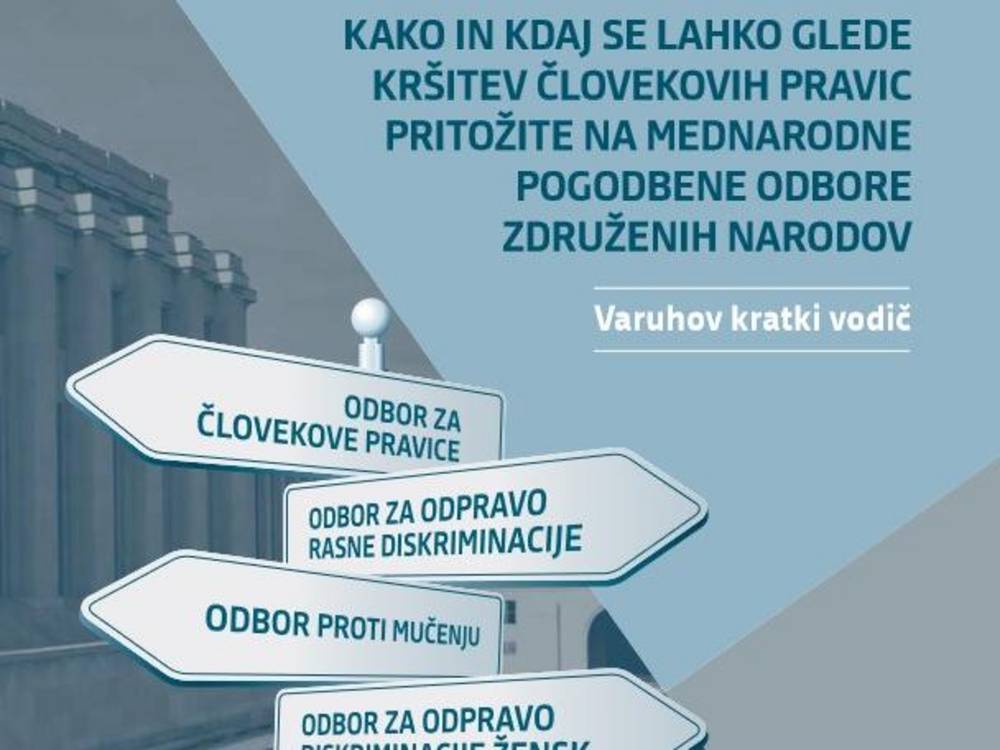The Human Rights Ombudsman of the Republic of Slovenia (Ombudsman) has published the second, updated issue of the Ombudsman’s short guide on how and when to complain to the international treaty committees about human rights violations. The aim of the Ombudsman's Guide is to increase awareness of international human rights complaints procedures and to encourage their use in cases of alleged human rights violations under international human rights conventions, which give individuals the option to lodge complaints against the conduct of the State. The Guide has therefore been distributed to all those institutions and NGOs that can inform people about the various options for protection of their rights.
The Guide contains information on the seven international committees operating within the United Nations for which Slovenia has accepted jurisdiction to receive complaints from individuals concerning specific human rights violations, as well as general information on the complaints procedure. In principle, to submit a complaint to a specific committee, domestic remedies must be exhausted, but legal representation is not mandatory.
The Guide also includes a new Model Complaint Form to encourage individuals, as well as NGOs and lawyers who advise individuals on further legal options, to consider appealing to one of the international committees in the event of alleged violations of human rights and fundamental freedoms. To this end, the Guide also contains a link to the otherwise extensive jurisprudence of each Committee, and several other useful links relating to international human rights procedures.
Appeals by individuals to international treaty committees provide an alternative international complaints mechanism to the European Court of Human Rights - which has jurisdiction only to determine violations of rights under the European Convention on Human Rights and its Protocols. Although the findings of these committees in an individual case are not internationally legally binding, States are expected to respect the findings of the committees and to inform the committee within a set time limit of the measures taken to remedy the violations. Such findings put additional pressure on the authorities to respect human rights, both in the specific case and otherwise, and constitute a form of international human rights law.
The number of complaints to these committees is also increasing compared to European countries, which shows that individuals recognise the added value of international mechanisms. For European countries alone, the International Treaty Committees have taken decisions in over 180 cases in the last five years. For example, an increasing number of complaints to the Human Rights Committee against the conduct of individual European countries concern violations of migrants' rights and discrimination, and to the Committee on the Rights of the Child concern issues of separation of children from their parents, migrant children, non-refoulement, discrimination, the rights to education, health and the understanding of the best interests of the child.
The Ombudsman notes that, despite the accepted competence of the seven international treaty committees, individuals in Slovenia do not opt for this type of international legal protection of their rights. According to official data from the Committee's jurisprudence database, no proceedings before any of the international treaty committees have yet been concluded against Slovenia. With this short guide, the Ombudsman aims to raise awareness of the additional options for international legal protection of individuals and their human rights. A better knowledge of the different legal and procedural options contributes to better and additional protection of the situation and rights of individuals, which is something the Ombudsman is constantly striving to achieve.

